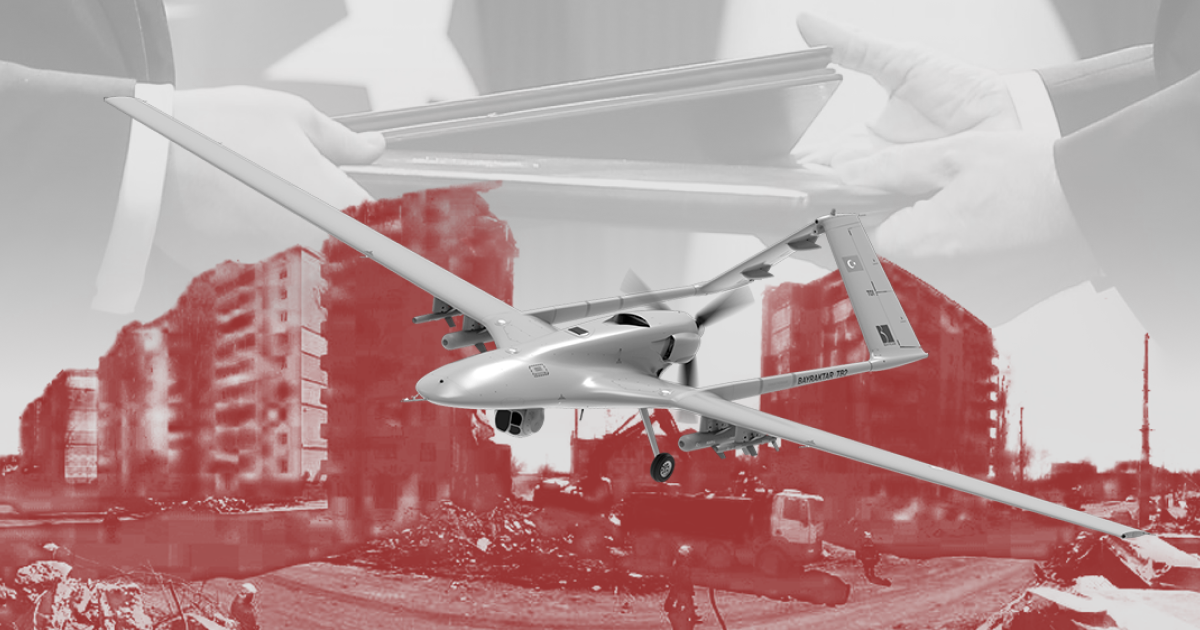Turkish Gambit of Joining BRICS. What are the goals of Türkiye's international policy?
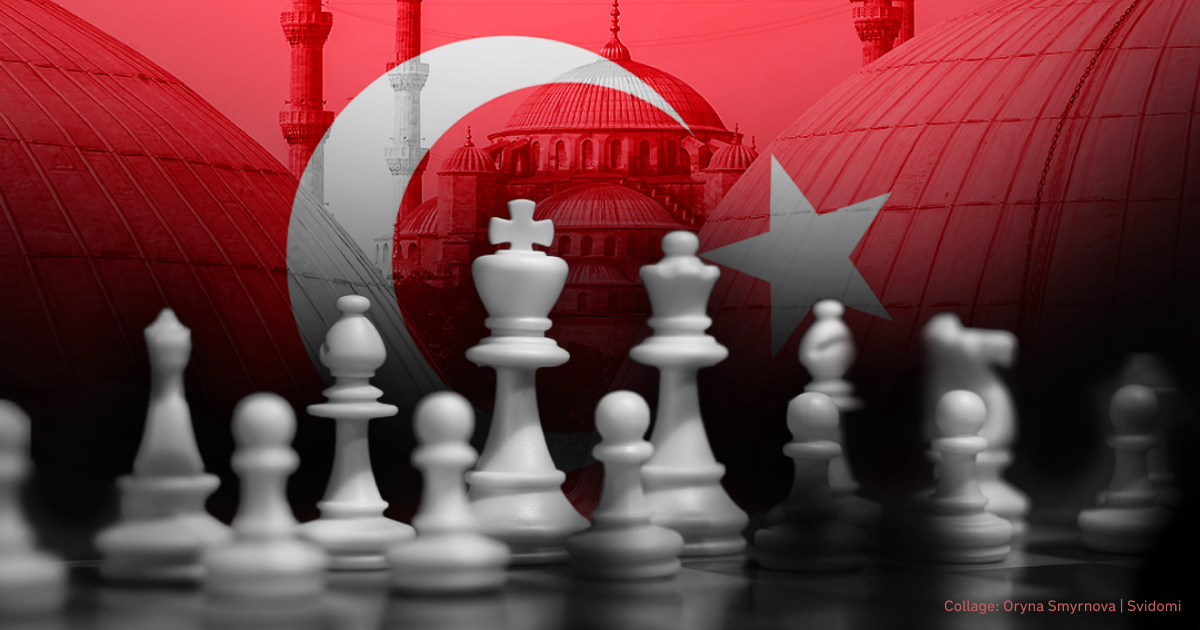
In 1987, Türkiye submitted an official application to join the EU, and in 2016, accession negotiations were suspended due to the Recep Tayyip Erdoğan government's failure to respect human rights in the country. In September 2024, the Republic of Türkiye applied to join the BRICS group of emerging-market nations, an international organization founded by Russia and China, Bloomberg wrote.
"BRICS is an organization that increases the diversity of approaches, identities and policies in the global economic system," Turkish Foreign Minister Hakan Fidan said after attending the BRICS foreign ministers' meeting in June.
Read more about Türkiye's political strategy and whose ally it is in the Russian-Ukrainian war in Svidomi's article.
Türkiye's International Policy Today
On September 3, 2024, Ömer Çelik, spokesman for the ruling party in Türkiye, confirmed that the Republic of Türkiye had applied for membership in the BRICS bloc. This international organization positions itself as an alternative to organizations with 'dominant Western influence' such as the G7, the IMF and the World Bank. Now, BRICS wants to replace the SWIFT payment system (BRICS Pay) and the international banking systems (BRICS Development Bank and the BRICS Contingent Reserve Arrangement). The organization is also creating the BRICS Universities League and the BRICS Cable (a backup optical fibre submarine communications cable system).
Türkiye could potentially become the first BRICS member to participate in the 'Western blocs', including NATO. The decision on the country's membership in BRICS may be made as early as October this year at the next summit of the organization in Kazan, Russia.
In addition to Türkiye, Azerbaijan, Malaysia and Thailand may also become future BRICS members. According to the World Bank, the organization will unite up to 33% of the global GDP if these countries join the bloc. This would overtake the 43% share of the G7 countries and create a new competitive force for the West. Citing Russian Foreign Minister Sergei Lavrov, the independent Middle Eastern media outlet Al-Monitor reports that more than 30 other countries have applied to join the BRICS. They include Algeria, Bahrain, Kuwait and others.
The decision was not unpredictable. In 2018, at the tenth BRICS summit, to which Türkiye was invited, Erdoğan declared his desire to expand his country's cooperation with the bloc. The first insider news about Türkiye's official accession to the BRICS group appeared in June of this year.
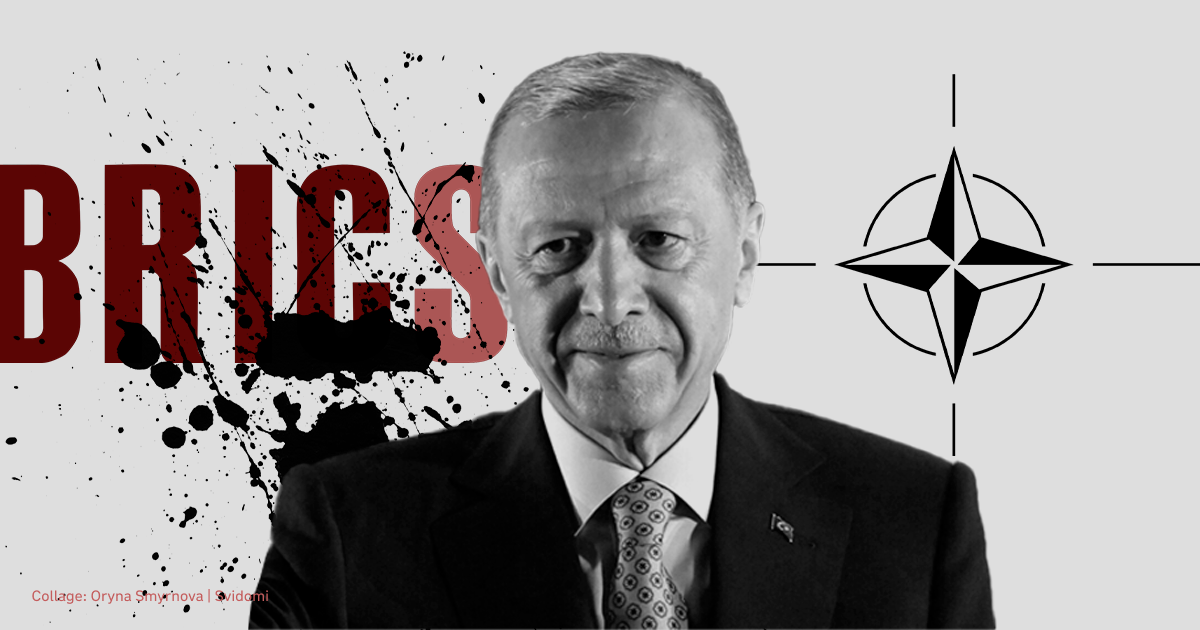
At the same time, Türkiye has not given up its intention to join the EU. On August 29 this year, Foreign Minister Hakan Fidan held informal talks with representatives of the European Union. This was the first government-to-government communication between Türkiye and the EU in the last 5 years.
"This invitation is a sign that the EU understands the necessity of developing relations between Turkey in the face of regional and global challenges," Bloomberg quoted Foreign Ministry spokesman Oncu Keceli as saying. He added that he hoped the dialogue would lead to a change in the European Commission's 2019 conclusions on blocking trade and certain defence deals with Türkiye. The decision to impose these bans was made because of Ankara's energy exploration in the Eastern Mediterranean. It concerns the installation of oil rigs in the waters of the Turkish Republic of Northern Cyprus. This self-proclaimed state was created in 1975 as a result of the Turkish military invasion the year before. Cyprus has been a member of the EU since 2004.
The attempt to establish relations with the EU was preceded by a meeting between Greek Prime Minister Kyriakos Mitsotakis and Recep Erdoğan in Ankara in May 2024. The leaders decided to improve the long strained relations between the countries. Greece is Cyprus' closest ally and one of the main blockers in the EU-Turkey negotiations on the country's accession to the Union.
«There is no problem with Greece that can’t be solved. It’s a process which needs to be rigorously advanced, our hopes are getting higher every time we meet,» Erdoğan told a joint presser with Mitsotakis. The Greek Prime Minister expressed similar hopes.
However, Türkiye has not yet received clear instructions regarding accession, visa-free travel with the EU or improved customs conditions. Therefore, the relationship between Türkiye and the EU remains uncertain.
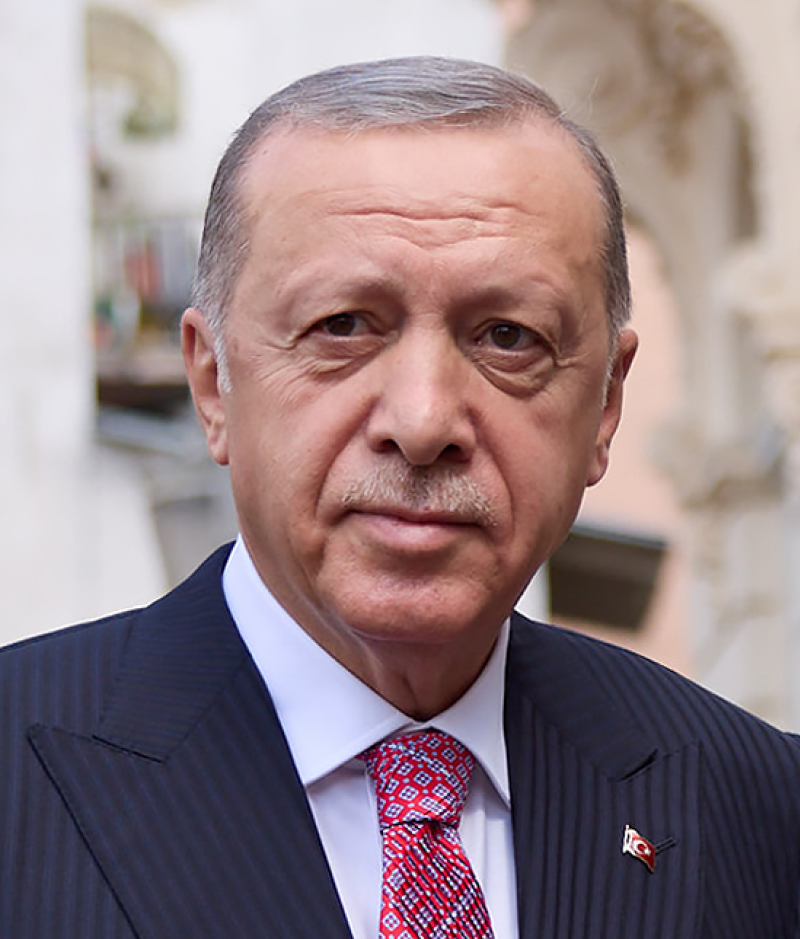
«Türkiye can become a strong, prosperous, prestigious and effective country if it improves its relations with the East and the West simultaneously,»
Recep Erdoğan comments on international politics.
"Who are you, Mr. Erdoğan?"
Recep Tayyip Erdoğan was the Prime Minister of the Republic of Türkiye from 2003 to 2014. He was also the first president to be elected by the citizens of the country, rather than by the parliament, in the August 2014 elections. According to Iryna Zaporizka, an Asia and Africa expert at ADASTRA (an independent Ukrainian think tank of social scientists that develops data-driven research for policy innovation — ed.), Erdoğan rose to leadership by advocating for a greater role for Islamic principles in governance. This is evident in his subsequent policies. In his speeches to the nation, Erdoğan has often used Sharia law and texts from the Koran to consolidate the authoritarian regime in the country. Officially, the president proclaims the country's secularism, i.e., the separation of religion from secular life in Türkiye.
Since coming to power, Erdoğan has emphasized Türkiye's independence from the Western world by not allowing US troops to enter the country to participate in the war in Iraq. At the same time, the EU representatives pointed out the suppression of freedom of speech in Türkiye in connection with the prosecution under Article 301 of the Penal Code, which prohibits insulting "Turkishness". In particular, the murdered journalist of Armenian origin, Hrant Dink, was charged under this article. During the investigation of his murder, it turned out that the Istanbul police knew about the impending attack but did not take any measures to prevent it.
The main impetus for the transformation of Türkiye into a presidential republic was the military coup attempt in July 2016. Within hours of the coup, mass arrests of military officers, judges, prosecutors and police began. In 10 days, a total of 13,000 people were arrested. The swift rounding up of judges and others after a failed coup in Turkey indicated the government had prepared a list beforehand, the EU commissioner dealing with Turkey's membership bid, Johannes Hahn, said.
As a result of the coup attempt, Türkiye held a referendum to amend the Constitution. It abolished the post of prime minister and transferred all power to the president. A few months later, Erdoğan stated that Türkiye «no longer needs the European Union.» Instead, he pointed out that it was the EU that needed Türkiye. «If the European Union is going to move forward, there is only one way to do so: to grant Türkiye membership and to take actions that will promote cultural and economic growth,» Erdoğan said.
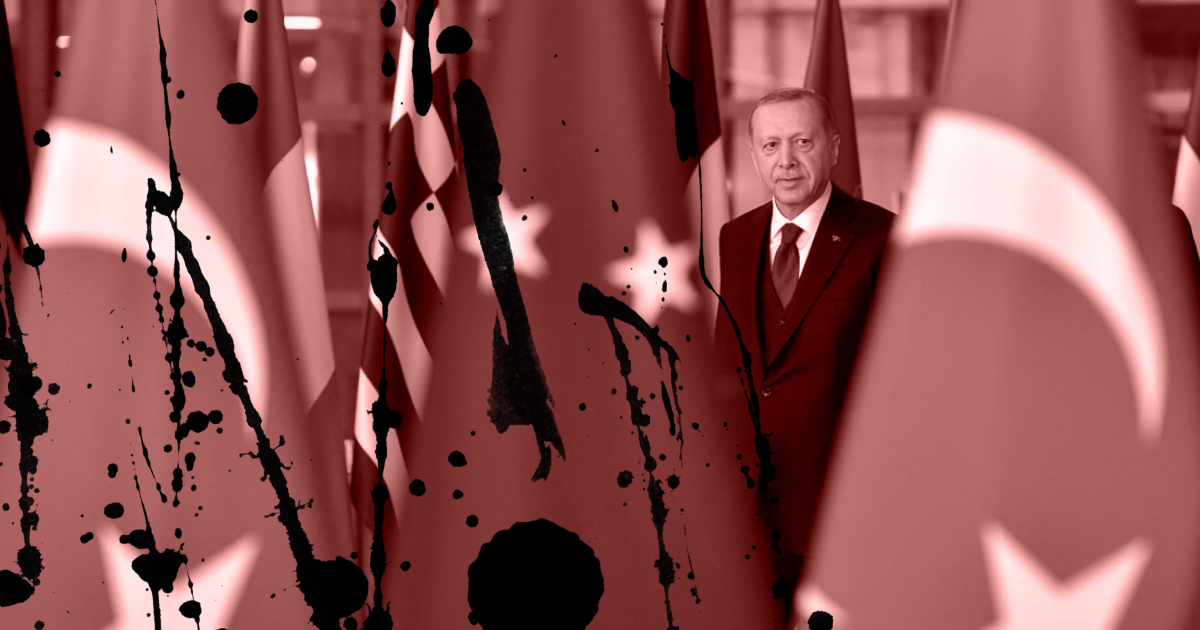
Russia or Ukraine: whose ally is Türkiye?
Türkiye and Russia have a long history of cooperation in the nuclear energy sector. Rosatom (Russian State Atomic Energy Corporation—ed.) is helping Ankara build the Akkuyu nuclear power plant in the south of the country.
The two countries also cooperate on the TurkStream natural gas pipeline from Russia to Türkiye.
Türkiye has been helping Russia circumvent oil sanctions through three Turkish terminals — Ceyhan’s Toros Terminal, Mersin’s Turkis Enerji and Marmara Ereğlisi’s OPET, Politico says. It has doubled its imports from Russia and exports to Europe, disguising Russian oil as Turkish. This gave the Russian Federation at least $3 billion in profit for the year.
The Financial Times reports that Türkiye has also long cooperated with Russia in circumventing sanctions on the import of components for the aggressor country's military and defence complex. According to a US Department of Commerce official, Türkiye is the world’s second-biggest source of high-priority, US-origin goods sent to Russia. As a result, the Ministry added 18 Turkish companies to its "entities list" for allegedly supplying Russia’s military-industrial complex and imposed sanctions on them.
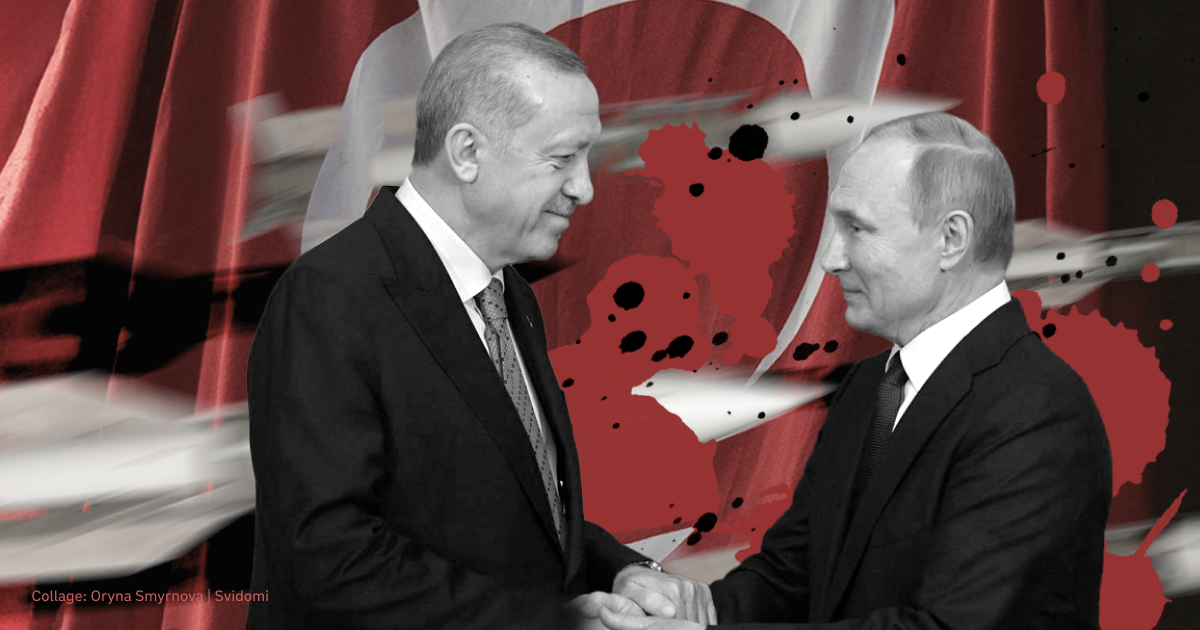
Meanwhile, Turkish banks have begun to block accounts of companies cooperating with Russia more often, Russian Ambassador to Türkiye Alexei Yerkhov said. Turkish banks have suspended payments from Russia since the end of 2023. This followed Biden's authorization to impose secondary sanctions on foreign banks suspected of supporting cooperation with sanctioned companies and the Russian military complex. According to the Glavkom media outlet, as a result, Turkish exports to Russia plummeted by 33.7 % in the first quarter of 2024. It has almost returned to pre-war levels of $500-600 million per month. This has become a problem for parallel imports of dual-use goods to Russia.
Türkiye's accession to the BRICS group should not be associated primarily with Russia. China is the main power of the organization today. «We do not have significant trade with the BRICS countries, except for China,» an anonymous Turkish official told The Middle Eye.
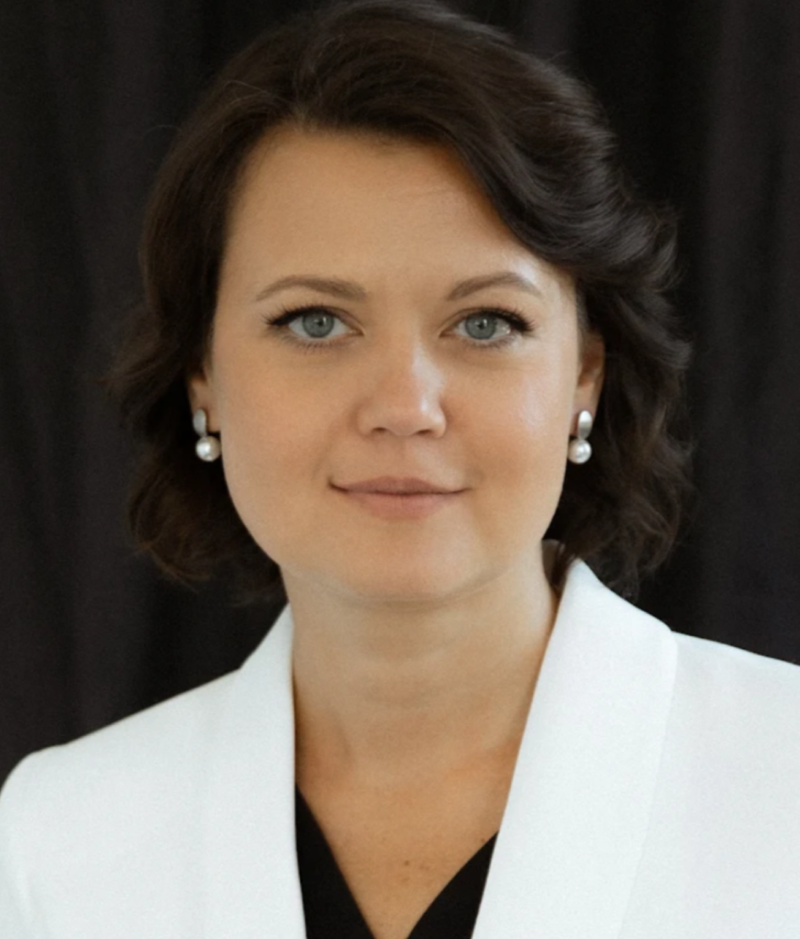
«The country's accession to the BRICS is more of a signal to the West than a step toward rapprochement with Russia. «This is an attempt to demonstrate Türkiye’s efforts to become a centre of power in the new multipolar world and to build alliances outside the Western world. If there were at least some real prospects with the European Union, so much attention would not be paid to the BRICS. Or if the EU adopted a more principled position and voiced clear prospects for Türkiye’s membership in the EU,»
says Evheniia Haber, senior analyst at the Center for the Study of Modern Türkiye, Carleton University.
Türkiye in the Russian-Ukrainian war
Since the beginning of Russia's full-scale invasion of Ukraine, Türkiye has consistently supported Ukraine's territorial integrity, provided military and humanitarian aid, hosted refugees, and voted in favour of all the resolutions of the eleventh emergency special session of the United Nations General Assembly. In August 2024, Erdoğan ratified the free trade agreement with Ukraine. It provides for Türkiye's cancellation of import duties for about 93.4% of industrial and 7.6% of agricultural goods.
Another well-known example of support for Ukraine is the Turkish company Baykar, which supplied the Bayraktar UAV to our country. The company is also building a drone manufacturing plant in Ukraine. Construction of the plant is due to be completed in 2025, the Espresso media outlet reports. Another contribution of Türkiye to the development of Ukraine's ability to repel Russian aggression is the navy. Türkiye has already manufactured the Hetman Ivan Mazepa corvette for Ukraine and is completing the second one, the Hetman Ivan Vyhovskyi. These vessels were the first warships built since independence to become part of the Ukrainian Navy. In the future, Turkish shipyards will supply our country with two more corvettes of the same type.
In this context, Türkiye's accession to the BRICS should not be perceived as a threat to the Ukrainian state in the war. Türkiye is playing a parallel ‘game’ for its interests, using all the tools at its disposal. Today, Ukraine should focus primarily on deepening cooperation with this country. The Erdoğan regime is not an ally of either Russia or Ukraine. However, it is an important strategic partner of our country in several issues: from the development of Ukraine's defence sector to a common policy of navigation in the Black Sea. As Henry Palmerston, a British statesman who served twice as Prime Minister in the mid-19th century, said: "We have no eternal allies, and we have no perpetual enemies. Our interests are eternal and perpetual." This is how Türkiye's policy towards Ukraine can be described today.
"On the one hand, Ankara will remain a difficult partner that always puts its interests first. On the other hand, the existence of common challenges (Russia's aggression) and common interests (from cooperation in the military-industrial complex to Ukraine's postwar reconstruction) can help make our relationship mutually beneficial. This will happen provided that Ukraine learns to defend its interests as masterfully as Türkiye is doing now," Yevheniia Haber sums up Ukrainian-Turkish relations.
